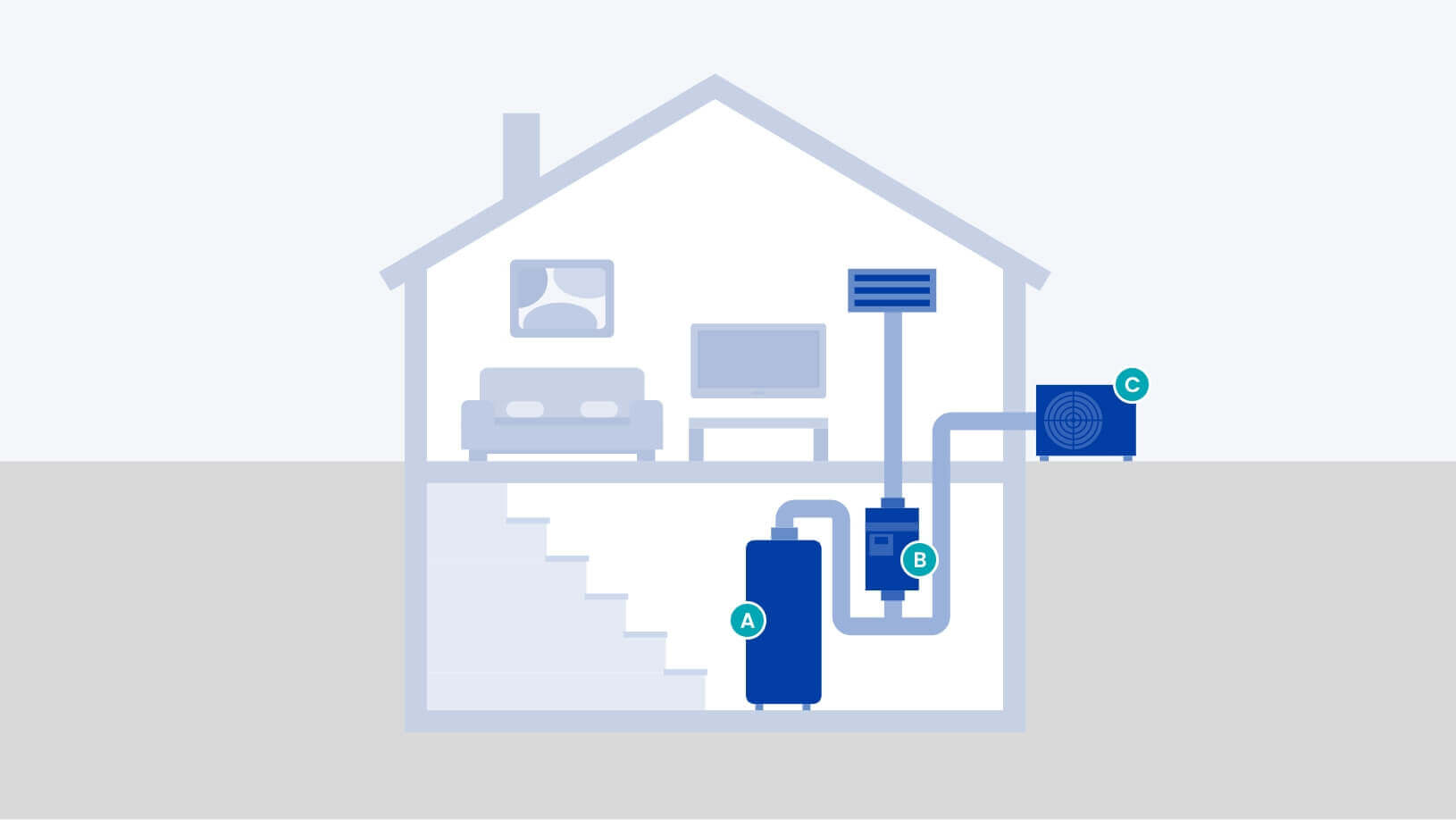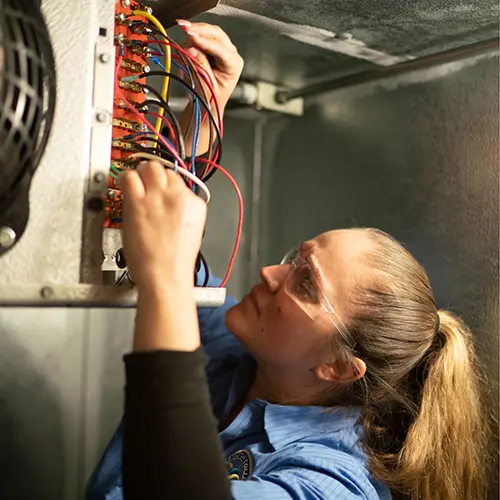A Thorough Take A Look At A/c Solutions and Their Effect On Power Performance and Cost Savings
With technological developments like clever thermostats and high-efficiency parts, the possibility for maximizing system efficiency is large. As we discover the complex partnership in between HVAC systems and functional expenses, consisting of the change in the direction of eco friendly alternatives, the question emerges: exactly how can these techniques be efficiently implemented to optimize both economic and ecological benefits?

Significance of A/c Solutions
a/c systems are a crucial element of modern structures, playing a critical duty in preserving healthy and comfortable interior settings. These systems, incorporating air, heating, and air flow conditioning, are essential for regulating temperature, humidity, and air top quality, therefore guaranteeing the wellness of owners. Reliable a/c systems add dramatically to producing an optimal interior climate, which is crucial for both household and industrial rooms.
In industrial buildings, cooling and heating systems are important to offering a safe and effective atmosphere. By regulating indoor environment problems, these systems aid stop the development of mold and the spread of air-borne contaminants, therefore safeguarding the health and wellness of consumers and employees. Furthermore, in household settings, cooling and heating systems improve living problems by offering constant thermal convenience and improving interior air quality, which is essential for overall wellness.
Additionally, the layout and upkeep of heating and cooling systems have a straight effect on energy usage and operational prices. Correctly designed and maintained systems can substantially minimize power use, bring about decreased utility expenses and a smaller sized carbon impact. The performance of these systems thus plays an essential duty in promoting sustainability and energy conservation within structures, highlighting their importance in the modern architectural landscape.
Developments in Cooling And Heating Technology
Advancement in HVAC modern technology is changing the method buildings manage indoor environments, introducing a brand-new age of effectiveness and control. Recent advancements have actually concentrated on maximizing power usage while enhancing user comfort. One notable development is the assimilation of clever thermostats, which make use of expert system to discover occupancy patterns and adjust temperature levels as necessary, lowering unneeded energy use.
Variable Cooling Agent Circulation (VRF) systems stand for another significant leap forward. These systems enable accurate temperature control in various areas of a building, boosting comfort and reducing power waste. VRF innovation is particularly advantageous for huge industrial spaces, supplying versatility and scalability.
Additionally, the arrival of Web of Things (IoT) tools has actually changed cooling and heating systems into interconnected networks qualified of real-time data collection and analysis. This connection enables anticipating maintenance, making certain systems operate at peak performance and reducing unanticipated downtime.
Moreover, advancements in products and design, such as making use of high-efficiency coils and compressors, have actually enhanced total system performance - Heating Contractor. The fostering of eco-friendly cooling agents also emphasizes the industry's commitment to sustainability
These technical developments are crucial in minimizing operational expenses and environmental influence, setting new criteria for building environment management.
Cooling And Heating Maintenance and Performance
Ensuring ideal efficiency of cooling and heating systems extends beyond technical innovations; it also rests on efficient upkeep practices. Regular maintenance is vital for maintaining efficiency, decreasing energy usage, and expanding the lifetime of HVAC systems. The primary goal is to make certain that all parts operate at their peak potential, thereby reducing energy wastage and preserving consistent indoor comfort levels.
Routine maintenance tasks, such as cleaning or replacing air filters, inspecting refrigerant levels, and examining ductwork for leaks, are important for avoiding unnecessary strain on the system. Clogged or dirty filters can block air movement, creating the system to function more challenging and take in more energy. Likewise, inadequate cooling agent levels can lower cooling down effectiveness, causing higher operational prices.
Furthermore, regular evaluations by qualified specialists can recognize possible concerns before they escalate right into expensive fixings or system failings. These evaluations typically include examining electric connections, adjusting thermostats, and making certain the general integrity of the HVAC system. By addressing small problems early, home owners and services can anytime heating and air prevent unexpected failures and improve power effectiveness.
Cost-Effective A/c Solutions
For those wanting to obtain the most out of their home heating, ventilation, and air conditioning systems without damaging the bank, discovering cost-effective heating and cooling remedies can make a substantial difference. One prompt measure is to invest in programmable thermostats, which permit individuals to establish specific temperature levels for various times of the day, optimizing energy usage and reducing unnecessary usage. By automating temperature level adjustments, house owners can attain considerable cost savings on power costs.
Regular maintenance is another critical component of cost-effective heating and cooling administration. Guaranteeing that filters are cleaned up or changed consistently, ductwork is secured, and devices are serviced by specialists can stop expensive repair services and improve system durability. Preventive maintenance not just keeps system effectiveness however also helps in staying clear of unforeseen break downs that can result in expensive emergency situation repair services.
Furthermore, retrofitting existing systems with energy-efficient components, such as variable rate electric motors or high-efficiency compressors, can be a prudent investment. These upgrades boost functional performance, decrease energy use, and can frequently be implemented at a portion of the expense of a full system substitute.
Environmental Influence Reduction
Lowering the environmental effect of Cooling and heating systems is vital in today's search of sustainable living. A/c systems are significant contributors to energy intake, accounting for nearly 40% of energy usage in business buildings.
Technical innovations in cooling and heating design and operation, consisting of the integration of clever thermostats and energy-efficient heatpump, are crucial in decreasing carbon footprints. These advancements enable enhanced energy use, reducing wastage and enhancing total system efficiency. Furthermore, embracing routine maintenance techniques my site ensures HVAC systems operate at peak performance, more cutting unneeded energy consumption.
Furthermore, making use of eco-friendly cooling agents is vital, as standard refrigerants, like CFCs and HCFCs, have been terminated because of their ozone-depleting buildings. Modern options, such as hydrofluoroolefins (HFOs), offer lowered ecological risks, aligning with international environmental methods. By accepting these sustainable techniques, a/c services can play a transformative role in reducing environmental impacts, promoting energy effectiveness, and promoting a much more lasting future.
Verdict

Moreover, the style and upkeep of Cooling and heating systems have a direct effect on power intake and operational costs. Routine upkeep is crucial for sustaining effectiveness, lowering energy consumption, and prolonging the life period of HVAC systems. A/c systems are significant factors to energy consumption, accounting for nearly 40% of power usage in business structures. In addition, taking on routine maintenance practices ensures Heating and cooling systems operate at peak effectiveness, additional reducing unnecessary energy consumption.
The transition to environmentally friendly HVAC systems further advertises and lowers operational costs sustainability. (Heating Contractor)